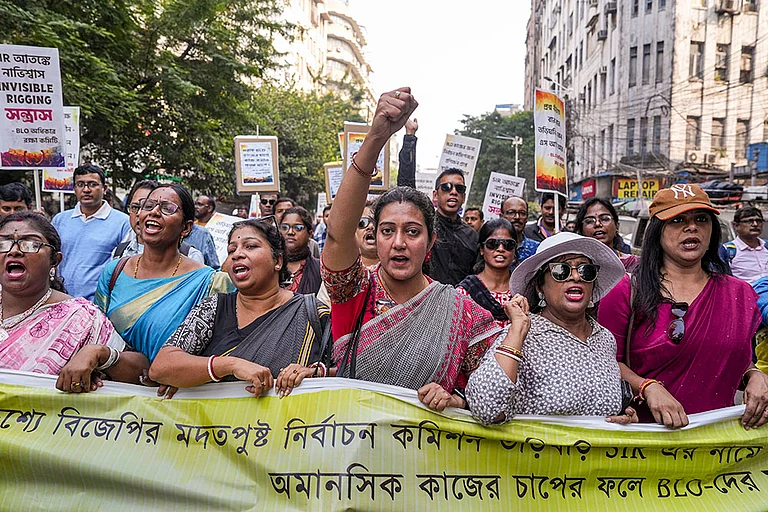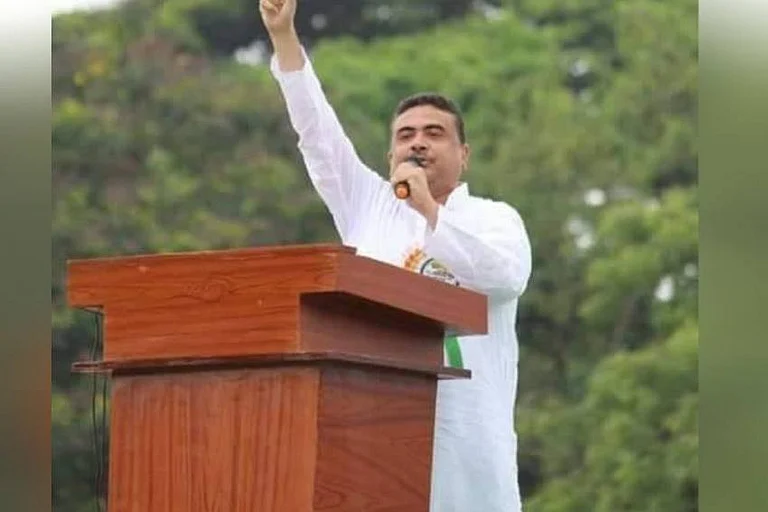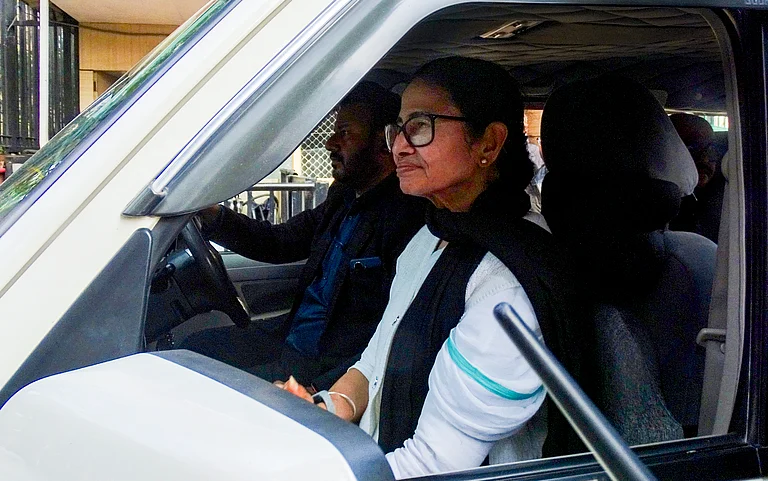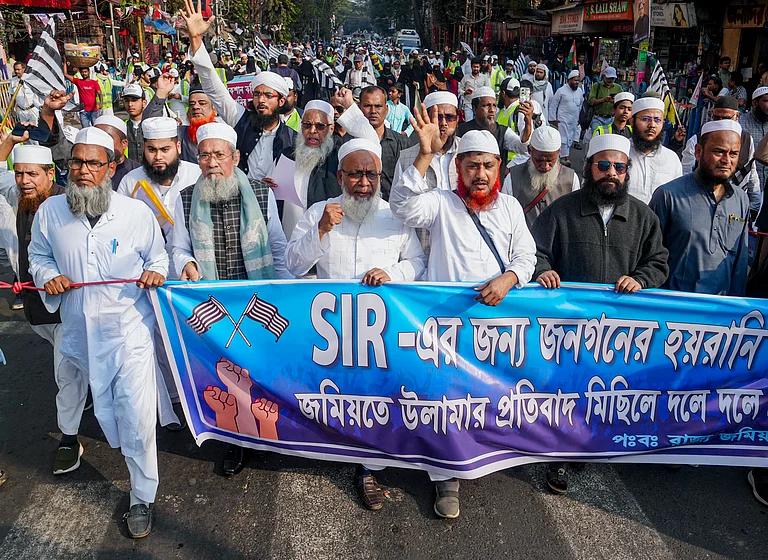More than 10 days have passed since Burnish, a village merely a kilometre away from the Teesta River, was hit by a ‘mini tornado’. The village is still trying to recover from the destruction the tornado has left behind ― shattered tin roofs, uprooted trees, empty porches and broken materials. There is little sign of domestic animals in the village; only a dog can be seen barking intermittently as if terrified, numb and clueless. The ‘mini tornado’ claimed five lives and left thousands injured. The people who are alive ― mostly from the Rajbongshi community ― have no clue as to how to move on. This community was as it is living a pedestrian life, and now this storm has pushed them further into a state of precarity.
The five-minute tornado that was followed by a Nor’wester left the people of this area with many questions. Ramesh Roy, who lives with his wife, son and his son’s family, says: “The storm blew away our documents. When the government was distributing money as relief to the affected people, we couldn’t provide our bank account number and didn’t get the money.”
Ruma Das, another villager, laments that all the gold that her father gifted her in marriage was blown away as strong winds carried away the almirah where she kept her gold ornaments. “The price of the gold that I lost was around 3-4 lakhs. When the storm came, I took shelter in my kitchen along with my two children. In the first blow of the wind, I along with the children fell on the hearth. One of the legs of my son got burnt,” she says.
Her husband, Arjun, has a Tata Magic Van car, which he used to carry passengers to earn a livelihood. “The tornado swept away my car at least 300 meters from my home, and now the car is severely damaged,” says Arjun. “My car insurance has lapsed, so I can’t get money to repair the car,” he adds.
Arjun looks grim and sad; he has to feed his entire family; and, he doesn’t know what to do. The rainy season is about to arrive, and he has to build a makeshift home. “The rainy season is very heavy here. The paddy seeds are gone. How can we cultivate paddy this year?
When asked as to whether they are getting any help from the government, Prabharani Roy, a resident of the village, says: “We are getting food items from the government and some NGOs, but that’s not enough, we need assistance to rebuild our houses.”
On their porch, the “Thakurghora” (the house of the gods,) lie as remnants of the Divine’s helpless submission to the calamity. The tin roof is nowhere in sight; the three vermilion-marked stones are the only proof that it’s a “Thakurghora”.
A villager, Shantiram Ray, ran towards this correspondent thinking he is a government official. He was wounded during the ‘mini tornado’ and was admitted to the hospital. The devastation is even more visible in the interiors of the village. An octogenarian told in detail how he was swept away along with his chapra (a thatched house with a tin roof). He saved himself by clinging to the cement pillar of his house. After every disaster, helpless people often thank the gods for saving them. He is not an exception. He thanks Teesta Buri, the local god of the Rajbongshi community.
Both the Rajbongshi Hindus and Muslims revere Teesta Buri and they believe she protects them from the wrath of Teesta, the river which has a long history of floods and devastation.
Jagadish Roy, the BJP panchayat member who got a clean victory in last year’s panchayat elections, is shattered. He is also a victim of the storm. When asked about government assistance and the number of people hit by the tornado, he says: “As the Lok Sabha elections have been announced and as the Election Commission is now in charge, the government has not announced any compensation. Yes, Rs 20,000 has been given and daily rations are being provided.” He goes on to say, “I hope once the elections are over, we will get more support to rebuild our houses.” Since most toilets in the village have been damaged, he says: “Some makeshift toilets have been constructed, and after the elections, we will talk to the authorities about more pucca toilets.”
Subal Chandra Ray, another villager whose house was destroyed, says that with the Rs 20,000 he got, he is building a tin thatched hut. He, along with his five family members, is now staying in a relief camp in a Shishu Shiksha Kendra (SSK). However, the SSK has also been damaged by the tornado. While narrating his ordeal, he says: “We hid under a cot, which was made of sal wood. Our house fell on us, but the cot saved us, though we got injured.”
A neighbour of Subal Chandra Ray was so distressed that he didn’t reveal his name. It is hard to believe that the place he was standing was once his house. He whispers to himself: “The poor have no one; the poor always face death-like situations.”
Maybe he is right. But the disaster has managed to bring people closer to one another. Jagadish Ray recalls how they recovered Rajia Banu from the rubbles, and how Nabiul Alarm, though being a Muslim, has set up three camps and continues to feed the affected people. Maybe there is hope for the people of this village to rise together from the rubble.
(The author is a poet from West Bengal)

























